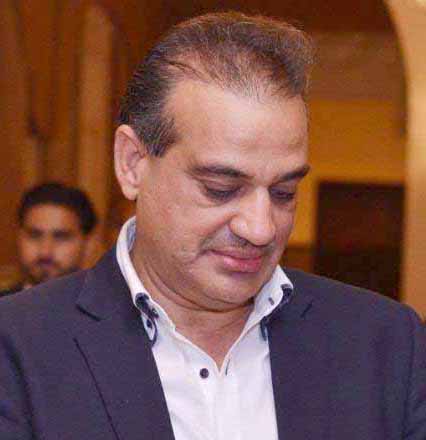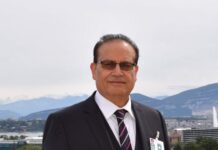The sole solution to escape this quagmire is through holding free and fair elections, facilitating a people’s representative government to assume power. Any interim measures, including the current one, will only exacerbate our problems
Comment
Ansar M Bhatti
The incumbent government’s honeymoon period is likely to be spoiled by the Opposition parties, which appear to have girded up their loins for a mass movement after Eid. The PTI ostensibly will be leading this movement. In a highly charged press interview on Saturday, April 6, 2024, Imran Khan not only launched scathing verbal attacks against the incumbent chief of the army staff but also revealed the presence of dissenting elements within his own party. These disclosures serve to further fuel and bolster the impending movement, setting the stage for intensified political turbulence in the coming weeks.
Khan’s adoption of a belligerent posture towards the Establishment can be attributed to primarily two factors. Firstly, the perception was growing that the founder of PTI was receiving preferential treatment from the courts, hinting at a potential arrangement with the Establishment to expedite his release from incarceration. Although there might be some clandestine negotiations between the Establishment and the PTI founder underway, Khan’s recent interview serves to reassure PTI supporters who were disheartened by speculations of a covert agreement.
Additionally, as highlighted earlier, the PTI required a compelling narrative to underpin its anti-government campaign effectively. Opposition parties assert that a narrative critical of the Establishment is more likely to garner widespread acceptance and support across various segments of society.
In the past, both the PML and the PPP sought to bolster their strength and popularity by challenging the Establishment of the time. Figures like Nawaz Sharif and Maryam Nawaz from the PML-N made brazen threats against the Establishment, while the incumbent President Asif Zardari, in a public address, boldly asserted the enduring presence of politicians compared to the transient nature of the Establishment’s influence. These tactics seemed to pay off, as both parties eventually ascended to power.
Building upon these historical precedents, it’s clear that Imran Khan is prepared to embark on a similar path, fueled by the conviction that his vocal opposition to the Establishment will yield comparable dividends for his political aspirations. This assertion gains further credence given his stature as the foremost leader in the nation. The recent decision by the Islamabad High Court judges to write a letter to the Supreme Judicial Council highlighting spy agencies interference in their matters seems to have favored the PTI founder and provides additional momentum to Khan’s cause.
In the prevailing political landscape, the absence of PPP’s participation in the government could pose significant challenges to the longevity of the Shehbaz Sharif administration. History and precedent suggest that prime ministers typically maintain their position for around two to two and a half years. However, without the support of PPP, the Shehbaz government’s ability to sustain itself for even a two-year tenure seems uncertain. The burgeoning opposition protest movement presents yet another formidable challenge to the government’s ongoing stability.
The inherent tension between the Establishment and the government is a longstanding feature of Pakistani politics, deeply ingrained in its polity. This tension can manifest gradually over time or erupt immediately upon a new government assuming power. Unfortunately, the Shehbaz government appears to have quickly fallen victim to this dynamic.
From the outset, the appointment of finance and interior ministers within the Shehbaz administration drew discontent within the PML-N ranks. Despite Shehbaz Sharif’s purported pro-Establishment stance, he has seemingly failed to reconcile with these appointments, indicating a fracture within the party’s alignment.
Regrettably, this discord is only the tip of the iceberg. The ongoing tug-of-war between the government and the Establishment is poised to escalate into more contentious territory in the days ahead. Such developments bode poorly for Shehbaz Sharif and his administration, signaling potential challenges and hurdles on the horizon.
All said and done. Politicians possess the capability to effectively address these challenges. Cultivating genuine connections with ordinary citizens is crucial, achievable through meaningful engagement and incentives. However, regrettably, many politicians overlook this vital aspect. Consequently, when they are ousted from power, the public often expresses relief. Imran Khan, inter alia, tried to deviate from the path of status quo and showed his intention to help out the have-nots. What happened to him afterwards needs no elaboration.
Even if a new setup replaces the Shehbaz government, it cannot guarantee political and economic stability. The sole solution to escape this quagmire is through holding free and fair elections, facilitating a people’s representative government to assume power. Any interim measures, including the current one, will only exacerbate our problems.
The writer is the newspaper editor.

















